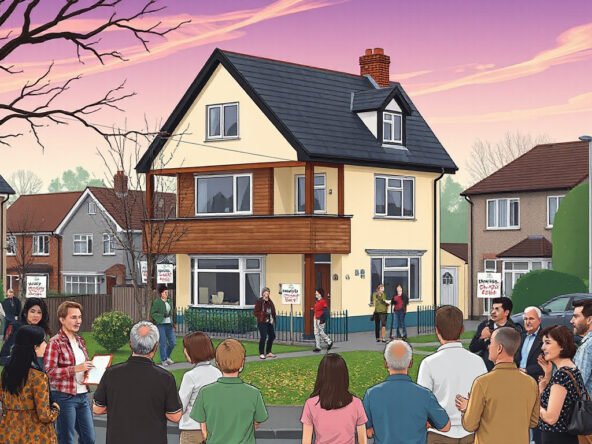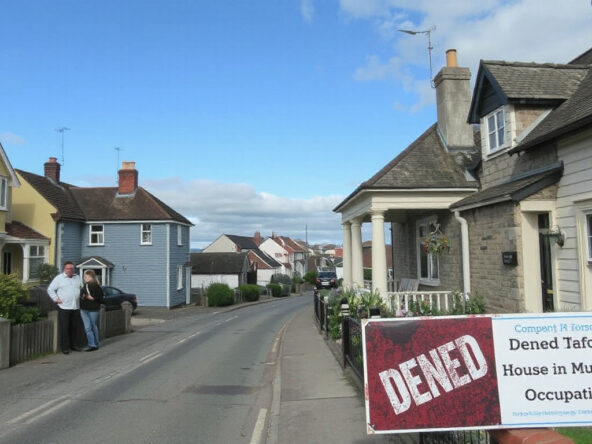In a significant move that has caught the attention of both local and national stakeholders, Shelter Scotland has demanded the resignation of the leadership of the City of Edinburgh Council over its contentious approach to homelessness policies. The charity’s condemnation follows a council decision to potentially decrease housing rights for vulnerable populations, just as Edinburgh grapples with the second-highest homelessness rate in Scotland. The council’s consideration of using unlicensed houses in multiple occupation (HMOs) has raised alarm bells, with Shelter Scotland arguing this breaches the rights of homeless households, as this practice stands in defiance of the current legal regulations surrounding housing safety. Furthermore, the council’s proposal to temporarily ease homelessness laws until March 2028 has ignited fierce debate, as critics argue this could normalize inadequate support for those in need. As the council asserts that these measures are necessary to navigate a short-term housing crisis, the implications for vulnerable individuals in Edinburgh remain troubling for advocates.
Key Takeaways
- Shelter Scotland demands the removal of Edinburgh Council’s leadership over alleged violations of homeless households’ rights.
- The council’s recent vote to suspend housing rights until 2028 has sparked widespread criticism regarding its impact on vulnerable populations.
- There is a significant divide between Shelter Scotland’s claims and the council’s defense, highlighting the contentious nature of homelessness policies in Edinburgh.
Overview of Edinburgh Council’s Homelessness Policies
In November 2024, tensions between Shelter Scotland and the City of Edinburgh Council escalated over controversial homelessness policies following a council meeting on December 3, where measures were approved to suspend specific housing rights until March
2028. Shelter Scotland has vocally criticized this decision, arguing that the council is attempting to legitimize unlicensed houses in multiple occupation (HMOs) as a means to address homelessness. According to the charity, such actions could infringe upon the rights of vulnerable homeless households, as using unlicensed HMOs contravenes legal standards and may be deemed a criminal offense (Shelter Scotland, 2024). In response, Edinburgh Council has firmly rebutted these claims, branding them as misleading while asserting that no final rulings were reached during the committee discussions. The context of this dispute arises amid Edinburgh’s alarming homelessness rate, the second highest in Scotland, which has prompted the council to seek short-term solutions for temporary housing. Authorities assert that these measures are necessary to safeguard vulnerable individuals, while stakeholders are increasingly concerned about the potential erosion of fundamental human rights for those experiencing homelessness in the city.
Reactions and Implications for Vulnerable Populations
The fallout from the December 3 council vote has raised alarm among various advocacy groups, particularly those focused on protecting the rights of homeless individuals. Critics argue that normalizing the use of unlicensed HMOs could set a dangerous precedent, undermining legal standards that are designed to ensure safe living conditions. Furthermore, the push to suspend housing rights until 2028 places vulnerable populations at even greater risk of exploitation and disadvantage, according to Shelter Scotland (2024). Advocates fear that the decision reflects a broader trend of inadequately addressing homelessness through policies that prioritize expediency over ethical considerations. As Edinburgh grapples with profound challenges in housing policy, the ramifications of the council’s actions could resonate far beyond the immediate context, suggesting a troubling shift in how local governments address homelessness and sustainability in urban environments (Smith, 2024). As public and governmental reactions continue to unfold, the pressure is mounting for the council to reconsider its approach and engage with housing rights organizations to find more equitable solutions that protect the rights and dignity of all citizens.
Feel free to contact us via WhatsApp, social media, or email.
Always find the best rooms to rent & HMOs for sale in the UK at HMO Reporter.




